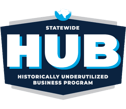How is Your HD List Management Really Going?
Webinar Recap: Conversations with Friends - Part 1
Topics: Rhazdrugs, Policy, USP <800>, Technology, NIOSH
Webinar Recap - Rhazdrugs: Scripps’ Innovative Approach to USP <800>
Learning from other healthcare systems’ successes and even failures helps everyone better protect patients and healthcare workers. We’ve been fortunate that Erica Bane, Pharm.D., BCPS, Medication Safety Officer from Scripps Health, has openly shared Scripps’ experience transforming their hazardous drug management process from relying on an Excel document to a larger, more secure, and more effective program that truly safeguards healthcare workers and in turn, protects patients too.
Topics: Rhazdrugs, Policy, USP <800>, Technology, NIOSH
Press Release: Rpharmy Clinches Silver, Bronze in 2025 Stevie® Awards for Excellence in Customer Service, Sales
Lead Customer Experience Specialist Sherlene Christen Earns Silver for Front-Line Service Professional of the Year; Director of Business Development Caroline McBreen Secures Bronze for Business Development Professional of the Year
Topics: Rhazdrugs, Policy, USP <800>, Technology, Formweb, News
Webinar Recap - Six Ways to Involve Nurses in Hazardous Drug Safety Planning
Our passion for protecting healthcare workers and patients stems from deeply personal experiences. In 2000, we tragically lost my paternal grandmother to a preventable medical error—a devastating reminder of what's at stake. Meanwhile, my maternal grandmother dedicated 40 years of her life to nursing. This family legacy drives our mission every day: to protect dedicated healthcare professionals like my grandmother Maggie while preventing other families from experiencing the loss we felt with my other grandmother Billie. Our commitment isn't just professional—it's profoundly personal.
Topics: Rhazdrugs, Policy, USP <800>, Technology, NIOSH
Webinar Recap: Make Hazardous Drug Info Easier in Your EHR
In session three of our recent Rhazdrugs webinar series, we covered the importance of integrating hazardous drug information into the EHR and how Rhazdrugs makes this a simple, no-brainer task.
Topics: Rhazdrugs, Policy, USP <800>, Technology, NIOSH
Webinar Recap: The Bare Minimum Won’t Cut It - 5 Tips to Stay Ahead of Hazardous Drugs
If healthcare facilities genuinely want to protect their people from the harmful effects of hazardous drug exposure, they must go beyond the basics of NIOSH. In the second installment of our webinar series, we discussed why it's important to go beyond the NIOSH list and offered some tips based on what your peers are doing to protect their people.
Topics: Rhazdrugs, Policy, USP <800>, Technology, NIOSH
Breaking Down NIOSH 2024: Antineoplastic Reclassification and Biologic Handling Updates
Is it too late to say Happy New Year? Maybe Happy New NIOSH is more appropriate? 🥳
As you know, by the end of 2024, NIOSH delivered a present we’ve been waiting nearly nine years for. This present comes with a bag of screws and nails and that one tool that never works. In other words, we’re happy to have this guidance but it was not without some serious work to get the benefits.
Topics: Rhazdrugs, Policy, USP <800>, Technology, NIOSH
Topics: Rhazdrugs, Policy, USP <800>, Technology
5 Key Takeaways: Scripps Health Streamlines Hazardous Drug Safety
In healthcare, hazardous drug safety isn’t just a compliance box to check—it’s a critical responsibility shared across teams. Pharmacists, nurses, and other healthcare professionals all play a role in protecting themselves, their colleagues, and their patients from exposure risks.
We’re happy to have the opportunity to be a part of this story we are sharing with you today.
Topics: Rhazdrugs, Policy, USP <800>, Technology
As we reflect on the first full year since USP <800> became enforceable in early 2023, it's clear that compliance has been both a challenge and a learning opportunity for healthcare facilities nationwide. The initial inspections revealed that even well-prepared organizations discovered areas requiring additional attention and refinement in their hazardous drug safety protocols.
Topics: Rhazdrugs, Policy, USP <800>, Technology, Formweb








.png?width=600&name=Safety%20First%20Blog%20Cover%20Photos%20(19).png)

